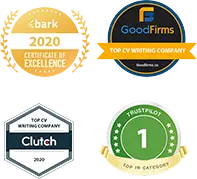A student CV is a document that contains a description of your educational record and accomplishments, outlines your research interest, and explains your skills, work ethic, information and knowledge, and achievements to your human resources management and education committee. Students can create a CV instead of a resume when applying for internships, scholarships, and volunteer work that they offer. A Student CV can compensate for the absence of work experience when applying by highlighting positive academic experience and goals you have achieved.
A student CV or a resume created for an undergraduate is the same as a medical, academic, or scientific resume for candidates with limited or no work experience applying for graduate school or who have completed their education. It’s like a well-crafted student CV. A resume is usually no more than one page long and describes the applicant’s work history, education, and skills. If you’re an undergraduate or a fresh graduate student, creating a CV that makes your courses and academic achievements prominent will help attract recruiters.
It helps you better describe your strengths and skills.
Enter Your Contact Information
You should use a competent and professional CV writing in Dubai when applying for a job, an internship, or a graduate program. Your contact information is vital in making your recruiter contact you easily. You should mention your name, personal phone number, and work email address. It is your job to share your correct information in the right format so that others can reach out to you easily.
Summarize Your Educational Background
A student’s resume usually begins with a description of their educational engagements. When you mention your academic background, you must mention your course of study, the name of your educational institution, and the date of your graduation, and in case your degree is still incomplete, you should mention the expected graduation date. You should include the grade point average (GPA) you earned. It provides readers with basic information about your academic skills, goals, and areas of expertise.
Outline Your Course and Interests
If you are applying for a job with your resume, please describe your specific areas or topics of interest. Showing your specialty or expertise shows your passion and expertise in the subject matter. This section may also include college courses related to your area of interest. Suppose you are educated and experienced in your field of interest. In that case, you can demonstrate to employers and admissions boards that you have the essential knowledge and skills to be successful in your chosen field.
Describe Your Research Experience
If you have worked as a researcher, you should add it to your student CV. When you mention those roles, you must include the formal title for that position and a precise description of each title. You must also include the exact duration and mention months and years. You can further demonstrate your interest in this area by highlighting your experience and including job and skill descriptions while differentiating yourself as an experienced candidate.
Add Publications and Presentations
During your undergraduate career, you may have the opportunity to work on reports, publish essays, or give presentations. Add descriptions, hyperlinks, or hypertext to these published materials to highlight your skills and achievements. It allows readers to see your previous work, thereby demonstrating your ability to produce quality work.
Elaborate on Your Extracurricular Activities
To attract the recruiter, you should try to mention all your co-curricular activities in your student CV; it is a proven way to tell your potential employer about your personality traits, skills, and interests. Suppose you have been an active student with group memberships in different activities. In that case, it can be a plus for your student CV as it clearly explains to the employer how good you are in communication skills and public relations.
Tell the Recruiter About Your Skills
In your resume, highlight your skills acquired through college courses, internships, or research. List all applicable skills and use action verbs that convey a strong work ethic. It will give hiring managers and examiners a basic overview of your skills and demonstrate that you can meet the requirements of the position and program.
Highlight Achievements and Awards
Her high GPA, class rank, academic awards, and other academic achievements can make you stand out as a candidate and show those reviewing your resume that you know yourself well. List achievements and awards earned during your studies and the date they became effective. Emphasizing your academic performance shows you are dedicated to your studies and can achieve good results.
View Grants and Grants
Your student CV allows you to tell your recruiter about the academic scholarships you earned during your studies. It would help if you mentioned the titles of the scholarship you won, the name of your college or university, and the date and year when you won it. Providing this information will help you learn skills in fundraising and writing grant applications. It is especially beneficial if you want to use your bachelor’s resume for teaching.
Add References
Both academic admissions committees and employers use references to assess whether you’re suitable for the position they offer. Your references may include researchers, professors, advisers, or colleagues. Try to provide at least three professional references who can support your candidacy on your behalf. Ensure each reference listing includes their full name, position, and contact information, such as phone number and email.









